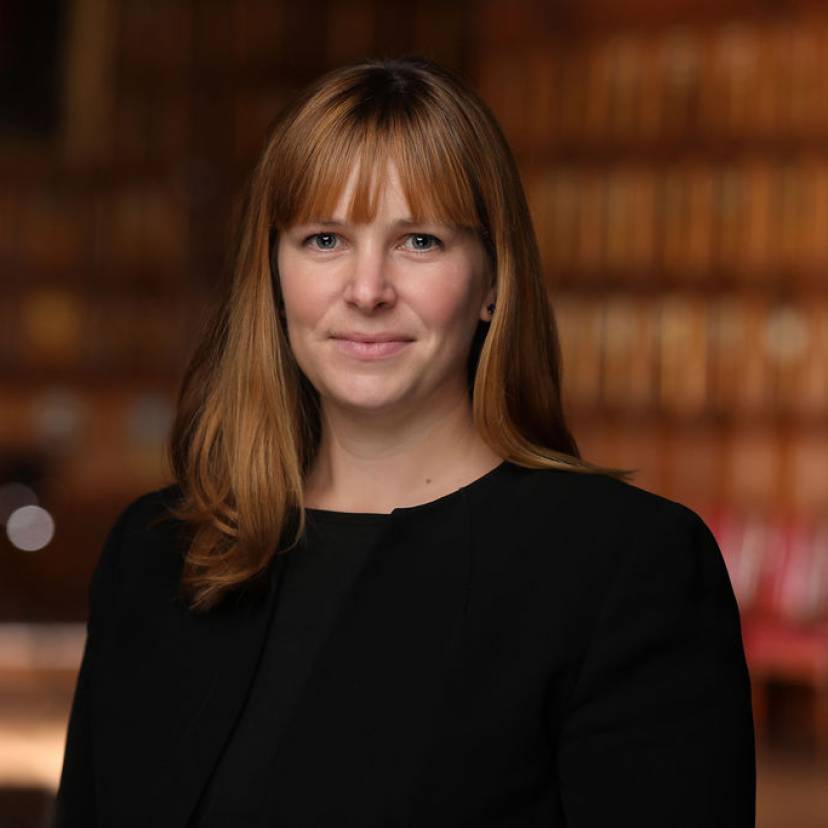Presidential Panel of the Upper Tribunal confirm that they must decide for themselves whether the DBS’s decision was proportionate.
21 February 2025
Laura Herbert, who acted for the Appellant, provides a summary of the key points addressed in the judgment.
For some KS v DBS [2025] UKUT 045 (AAC) is a ‘long awaited’ judgment behind which a number of permission decisions, and oral hearings, have been stayed. Ultimately, it is a useful decision for those who represent Appellants in the Upper Tribunal (‘UT’) on Disclosure and Barring Service (‘DBS’) appeals.
Brief facts
KS was a newly qualified nurse working in a paediatric ward who had made a number of clinical errors, predominantly failing to undertake observations on time. There were also allegations of dishonesty where she had written a colleague’s signature to countersign for medication without her consent and used her mother as a reference. She had been referred to the Nursing and Midwifery Council (‘NMC’) and was subject to an interim suspension order. The allegations all took place during a time where KS was the victim of domestic abuse, and she had to have surgery on her throat. The DBS placed her on both barred lists. On appeal it was argued that the decision to bar was disproportionate for a newly qualified nurse with the particular characteristics of KS.
The Three Key Issues
1. The key take-away is that the Upper Tribunal are to decide the issue of proportionality for themselves, taking into account the DBS’ analysis but making its own assessment of the relevant factors as a whole. The UT does not need to place ‘significant weight’ [para 73] or apply ‘Wednesbury unreasonable principles’ [para 50] when considering the DBS proportionality decision. In considering ‘how’ the UT should exercise this power the Court confirmed that there should not be ‘supine acceptance’ but give ‘appropriate weight’ to the DBS’ decision. [para 53-54]
2. The second important issue decided was that the Upper Tribunal has the power to permit an appellant to amend their grounds of appeal after permission to appeal has been given. This helpfully undermines the much-used argument submitted on behalf of the DBS that Disclosure and Barring Service v JHB [2023] EWCA Civ 982 at [97] which precluded this because ‘Section 4 does not give the UT power, once it has given permission to appeal, to enlarge the scope of the appeal beyond the limits of the grant of permission. Although the UT refused to allow the Appellant to amend the grounds (for various reasons) they applied the principle of RI v Disclosure and Barring Service [2024] 1 WLR 4033 at [50] and their Upper Tribunal Rules (Section 5(3)(c) to confirm that on proper application an appeal notice can be amended with the leave of the court. [para 24-26]
3. The third helpful point is that the UT accepted that the facts relevant to proportionality are not limited to findings about relevant conduct so long as they are relevant to the ‘effects on the rights of the person.’ This therefore could, in certain circumstances, broaden the scope of the Article 8 ECHR proportionality arguments in DBS cases. Though, in this case, the Appellant’s personal circumstances of being a victim of domestic abuse and the trauma caused by that was not considered to make the impact of the DBS bar more severe on her. [para 72]
What the UT have left for another day?
There were a number of issues that were raised in this appeal that the UT decided not to grapple with on the facts of this case, but leave the door open for cases with the right facts to argue the issue:
1. The DBS has a binary decision to include or not to include someone on the barred lists once the statutory conditions are met. They do not have the professional Regulator’s powers to suspend or impose conditions of practice. It was argued in this case that because KS’s failings were principally clinical in nature, arising only in her role as a nurse (and not when she was a health care associate or in other settings), that the DBS ought to have considered whether the suspension by the NMC of her nursing practice was sufficient protection of the public, and that a decision to bar was disproportionate, as a less intrusive measure would achieve the objective of protecting the public. Unfortunately for KS, some of the failings were greater than ‘clinical’ errors, but there are certainly cases where there are single, or even multiple clinical errors, where the DBS have argued transference into a wider setting which might be able to benefit from raising this as a proportionality point, if their professional is currently suspended/on conditions of practice (whether interim or substantive.) [para 63]
2. It was also argued that if the UT were to find new facts (which they did not here), that they should then apply the proportionality analysis on those facts to come to a new proportionality decision, rather than rely on the DBS decision which was based now unsubstantiated factual findings. This seems like common sense, as a lesser number of proven facts or findings on less serious issues could materially affect the proportionality balancing exercise which the DBS need to undertake, and therefore the UT should make this assessment for themselves on appeal. The UT decided to ‘express no opinion’ but did not rule out this type of argument.
What might be unhelpful?
The UT also considered ‘public confidence’ as part of the proportionality exercise and referred to the DBS’ ‘Appropriateness and Proportionality’ guidance and the Court of Appeals comment in B v Independent Safeguarding Authority [2012] EWCA Civ 977 at [25] that was ‘something that needed to be placed in the scales.’ Here the DBS did not consider public confidence in their decision letter, nor was it raised as an issue on the appeal which led the Court to conclude that it was ‘not sufficiently significant to have a bearing on appropriateness such as to require to be documented.’ However, these paragraphs read a bit like the UT are suggesting the DBS should consider this as an issue in more cases and I fully expect to see a line on ‘public confidence’ in the next decision letter.
Laura was instructed by Harjinder Saundh of Thompsons Solicitors.

